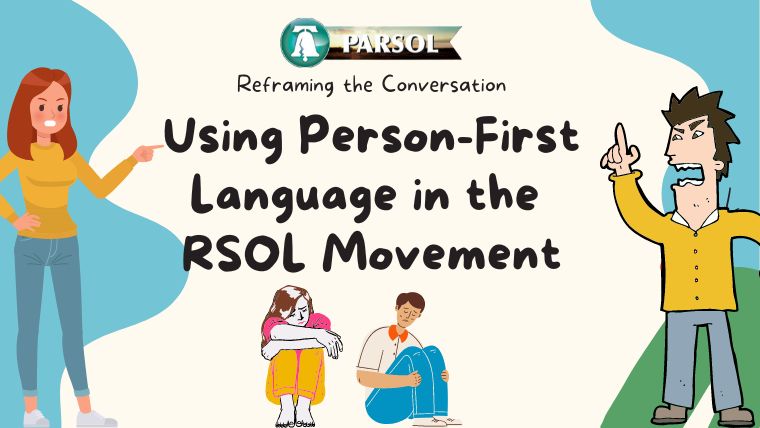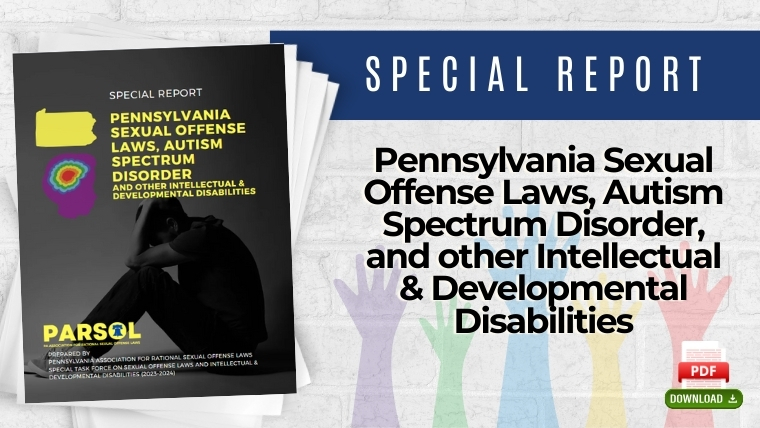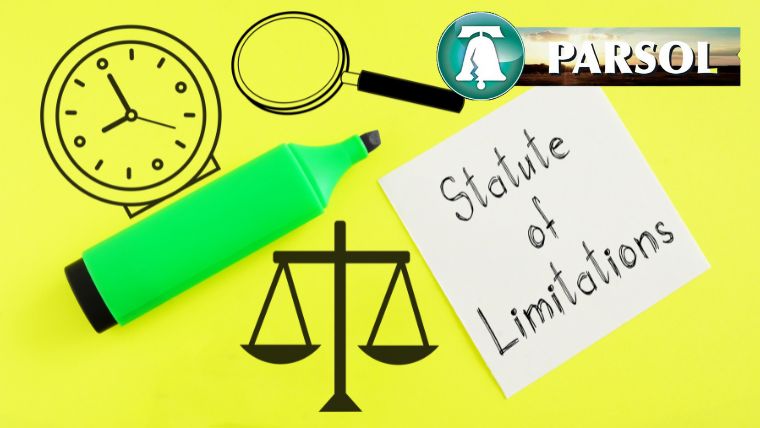PARSOL receives letters and phone calls from people who are on the registry and those facing being placed on the registry. Often these letters and phone calls include statements like, “I am a sex offender,” “My daughter is a sex offender,” “My husband is a sex offender.” News articles, legislative documents, legal documents, and even professional journal articles refer to people who are on the registry or who have been charged with a sex crime as “sex offenders.” The registries themselves are titled, “Sex Offender Registry.” Given the prevalence of the term “sex offender” it is understandable that it is so widely adopted even by those of us who are directly affected by this label. At PARSOL, we are committed to person-first language as we believe it is more accurate and respectful of human dignity to acknowledge the person first and foremost.
Advocates for rational sexual offense laws need to be aware of the tone that they are setting with their choice of words. As our movement covers some sensitive areas that people have strong feelings about, we must always be aware of how we present our case for reform. This article provides examples and why person-first language is important in the movement to pass rational sex offense laws both federally and in all 50 states.
What is person-first language?
Person-first language puts the person before their circumstances and describes what a person has, not who a person is. Rooted in the disability community, person-first language uses phrases such as “person with a disability” or “individuals with disabilities,” as opposed to phrases that identify people based solely on their disability, such as “the disabled.”
An example of shifting to person-first language is changing the phrase, “Jim and Jen have an autistic child” to “Jim and Jen have a child with autism.”
Why does it matter in the fight for rational sexual offense laws (RSOL)?
Persons forced to register on the Megan’s Law List (SORNA) are, first and foremost, people. Too frequently, they are dehumanized by people using the insulting slurs pedophile, rapist, child molester, etc. Those supporting the fight for rational sexual offense laws understand that these terms are problematic as they focus on a past crime instead of a healthy, offense-free present and future.
The use of person-first language both reinforces the humanity of the registrant and can be a conversation starter around the idea that words matter.
What common terms and phrases should use person-first language but usually aren’t?
Common terms and phrases in the movement for rational sex offense laws and their person-first equivalents include:
| Commonly Used Term or Phrase to Avoid | Person-First Language to Use |
|---|---|
| Megan’s Law Registrant | Person Forced to Register (PFR) under Megan’s Law |
| Sex Offender, Rapist, Abuser, etc. | Person with a sex offense charge |
| Sex Offender Registry | Sex Offense Registry |
| Child Abuser, Molester, etc. | Person with a sex offense charge involving minors |
| Child Porn Viewer, User | Person with a sex offense charge involving illegal images |
| Sexually Violent Predator | Person with the label SVP |
| Sex Crime Victim | Survivor of sexual victimization |
| Pedophile | Person with a diagnosis of pedophilia |
We know that changing the narrative will take time.
Even some advocates for change are still using outdated identity-first language and sometimes that’s for a valid reason. In legal circles, phrases like “sex offender” are built into legislation and public policy, so “sticking with the language of the law” can be valid points, but should be placed in quotation marks wherever possible. Since person-first language is a relatively new shift in thinking and presenting, it often can be used to educate others on the negative effects of identity-first language for all the reasons listed above.
Opposition to Person-First Language
Autism activist Jim Sinclair rejects person-first language, on the grounds that saying “person with autism” suggests that autism can be separated from the person. This reason reinforces the importance of person-first language when working with persons forced to register, the large majority of whom actively work to put their bad decisions in the past while moving forward with the tools to not re-offend.
Why Person Forced to Register?
We believe that Pennsylvania Megan’s Law imposes ongoing punishment for crimes already punished, which is unlawful under Article 1, Section 10 of the US Constitution.
Megan’s Law forces people to register for past charges. based on the false premise that the risk of them committing a subsequent related crime is high. No person is forced to register for any other ‘pending or potential’ crime including those who have committed murder, violent assaults, drug offenses, etc. This is especially problematic since the Pennsylvania Department of Corrections itself reports recidivism and re-arrest are lowest for people with sex offenses.
How can you help?
Aside from changing your own language usage, look at your practical use. If you are a therapist, make sure you are using it in your blog posts and writings. If you are an attorney, begin using person-first language in your filings. Certainly, if you are a legislator, you can introduce bills that include person-first language, and even introduce a bill that changes the use of “sex offender” to “person with a sex offense” in all existing policy and passed legislation.
Additional Resources
For more information about person-first language visit the following:
- https://askearn.org/page/people-first-language
- https://odr.dc.gov/page/people-first-language
- https://tcdd.texas.gov/resources/people-first-language/
- https://en.wikipedia.org/wiki/People-first_language




